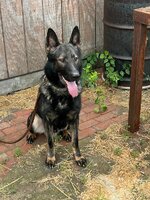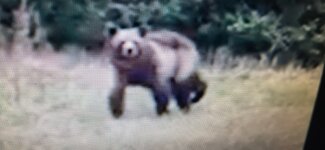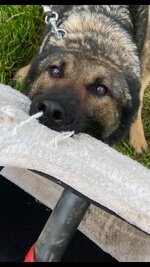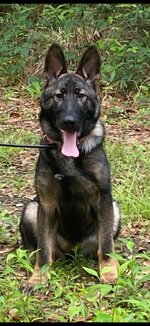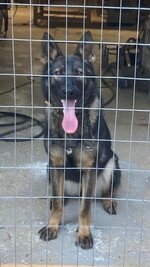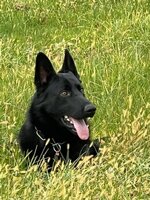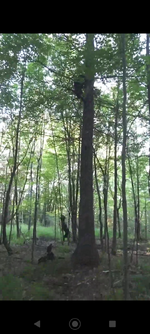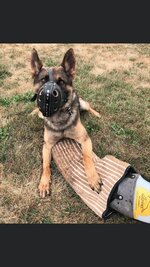German Shepherd imported from the Czech Republic has been in grizzly country with us for the last five years, can alert to any bear way before it can be seen, just enough distraction if things ever went bad. he is fearless and will take his death immediately to protect his owners. I carry a Mossberg Maverick top folder as a backup, with 3-inch magnum crush slugs and 3-inch 0 buck, enough firepower to drop any encountered threat.All these have been in grizzly country at one time or another, all 100% trained to perfection.I hate to start a new thread as there is one similar,m going on right now, but I dont have a Weight limit and the dog can be as big as it needs to be.
Back story. I live and hunt in serious grizzly country. We have a rule that we dont hunt alone, (yes its that bad). Even when hunting in pairs, we dont separate with the exception of putting a stalk on something. I have stuck to that rule until this year, my long-time hunting partner is guiding, and there were weekends I had no one to hunt with.
So I took the larger of our 2 family dogs with me a few weeks ago. Buck is a 95lb mountain Cur. I walked into a creek bottom being very cautious of course, when all of the sudden Buck went absolutely ballistic barking behind me. I look back and there is a 500lb (yes, I know bear size is often exaggerated, this is not) grizzly boar standing at 20 yards looking at me and looking back to Buck who is literally 5 feet from that bears face giving him the business. An intense stand off lasted for about 10 seconds where that bear was deciding what he wanted to do and he finally turned and ran, and Buck followed behind him, chasing him up the mountain until he was about 100 yards away, then Buck turned around and re joined me at my side.
That dog was fearless. Ive never taken him hunting and to be honest he did exactly what I hoped he would do. He stays close to my side, not on a leash, when we get into dense brush, he goes a little ahead of me and bird dogs around ( which is how he found that bear that I walked right past). When I sit down to glass I tie him next to me to sage brush or a tree and he just lays down.
The only problem I have with him is I cant tie him up and walk away from him or he will bark. Sometimes he gets too far ahead and doesnt listen immediately when I call him. So we have some training to do, maybe an E Collar.
So this got me thinking that going forward I would like to get another dog after Buck or sooner that will suite my needs as a hunting companion. I dont need the dog to spot game, blood trail, point or any of that. I need it to be fearless, easily trained to sit, stay, not bark at game, stay by my side and most importantly not back down from enormous grizzly bears.
Maybe with my experience with Buck I know the answer already, but to be honest up until that weekend, me and Buck havent had the best relationship, I am not sure if its the breed, but him in his sister have been pains in the asses. They have way too much energy, very needy, run away when we are at home every chance they get, destroy crates, destroyed a chain link kennel. All this has gone on regardless of how much attention and time is spent with them, they just can't chill.
Buck is 6 so he still has plenty life left in him and we are going to start training the bad habits out.
Im thinking having a well trained dog will enable me to hunt at times I would otherwise have to stay home. I wont be getting another dog for a few years, but am curious what breeds to focus around when that time comes.
Thanks.

Sent from my SM-G990U using Tapatalk
Navigation
Install the app
How to install the app on iOS
Follow along with the video below to see how to install our site as a web app on your home screen.
Note: This feature may not be available in some browsers.
More options
Style variation
You are using an out of date browser. It may not display this or other websites correctly.
You should upgrade or use an alternative browser.
You should upgrade or use an alternative browser.
Best breed for big game hunting companion.
- Thread starter grfox92
- Start date
Unfortunately it seems like EVRYONE here in Wyomin has told my wife the Heelers are nippy and try to herd you and your kids, I don't believe this to be true, but she's not into them for this reason.Heelers can do it all. Small game, birds, coyotes, cattle, farming, mowing, guard duty, agility, blood trailing. You name it, a heeler can do it. And they make good family dogs and companions....
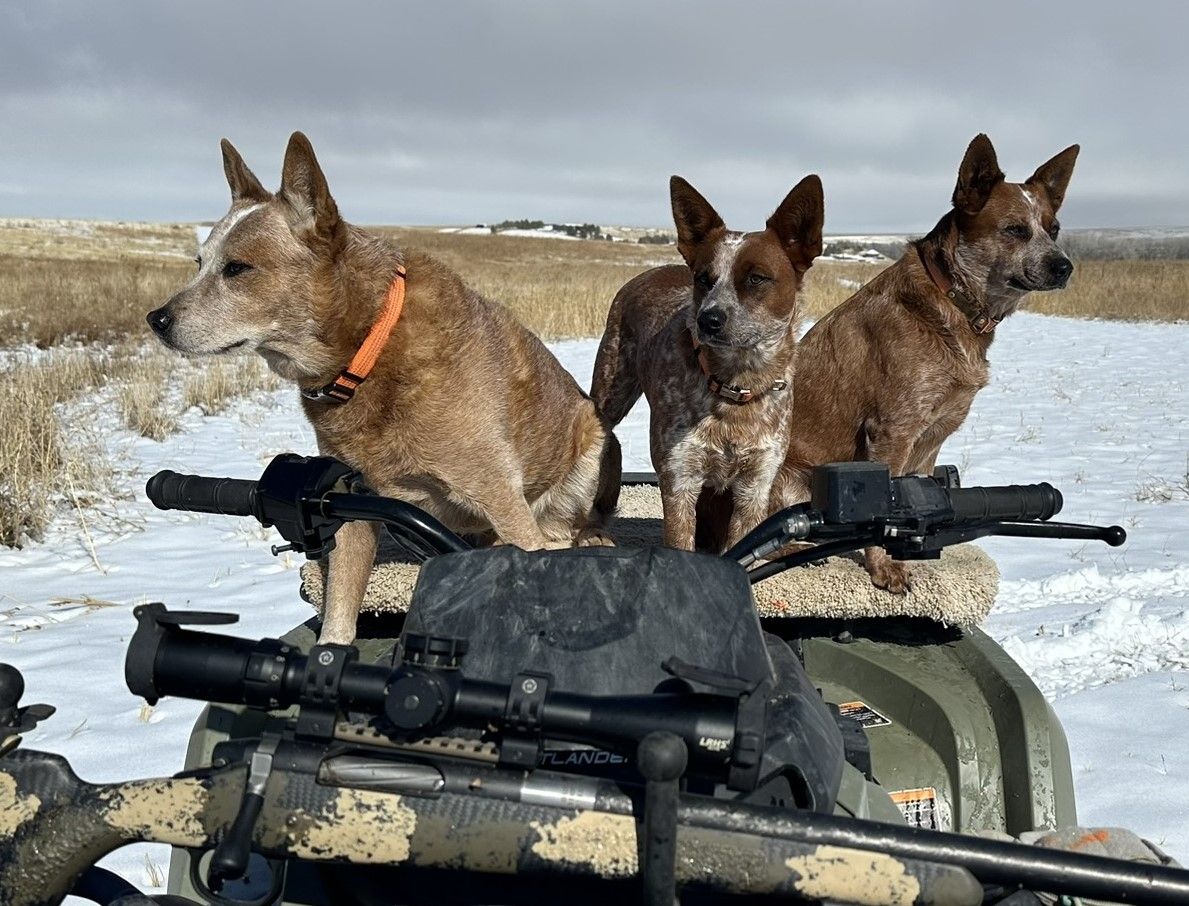
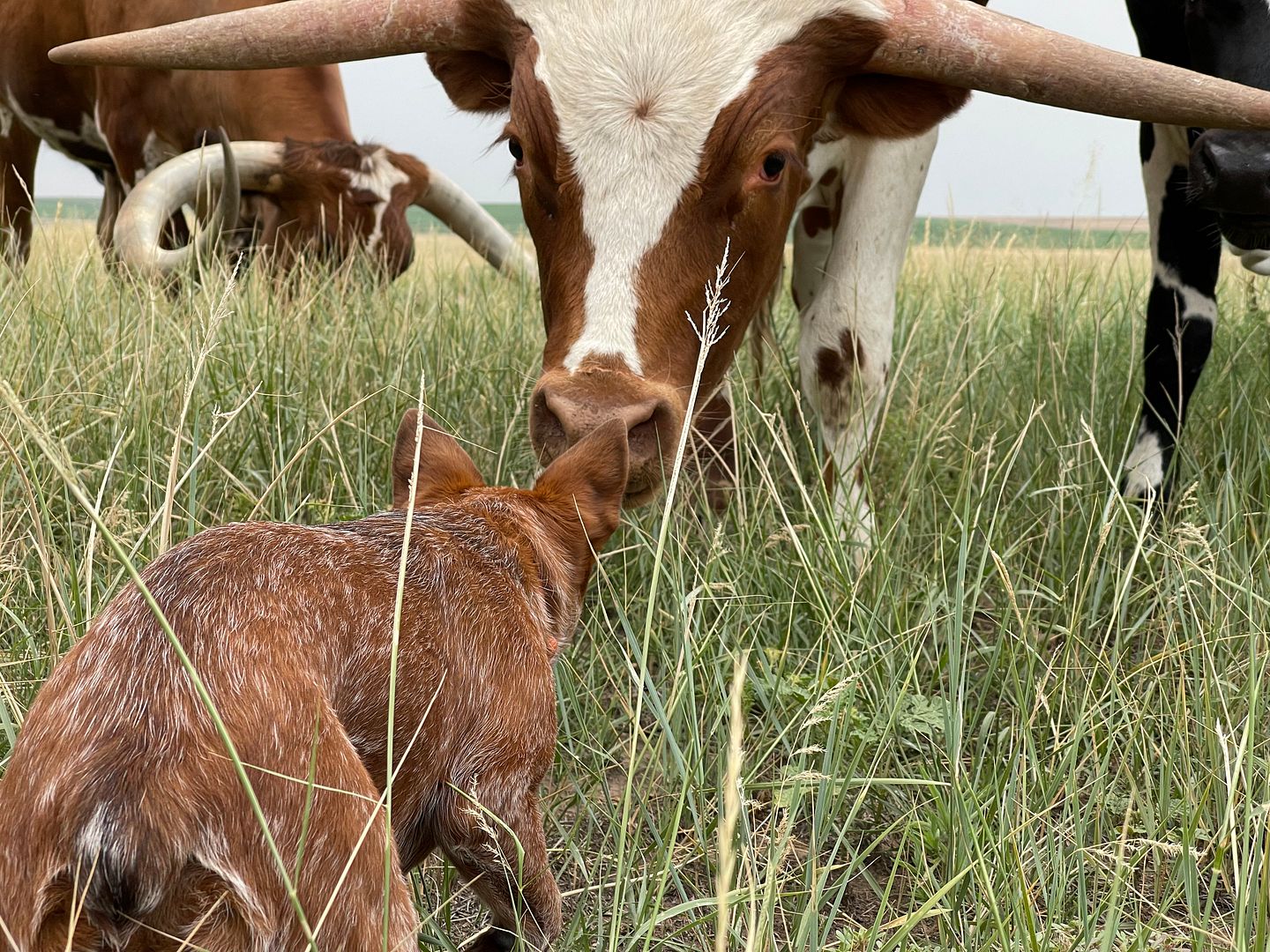
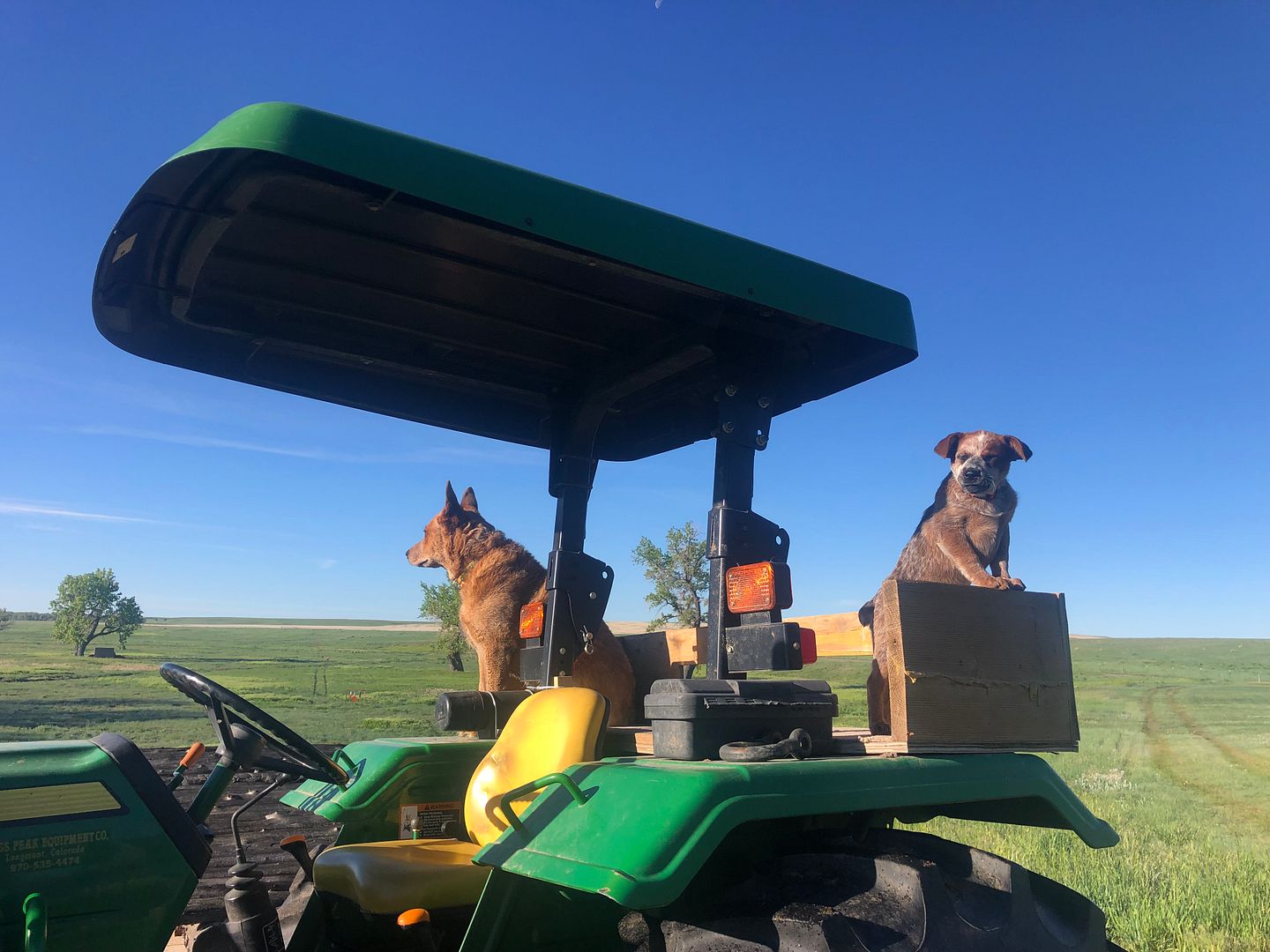
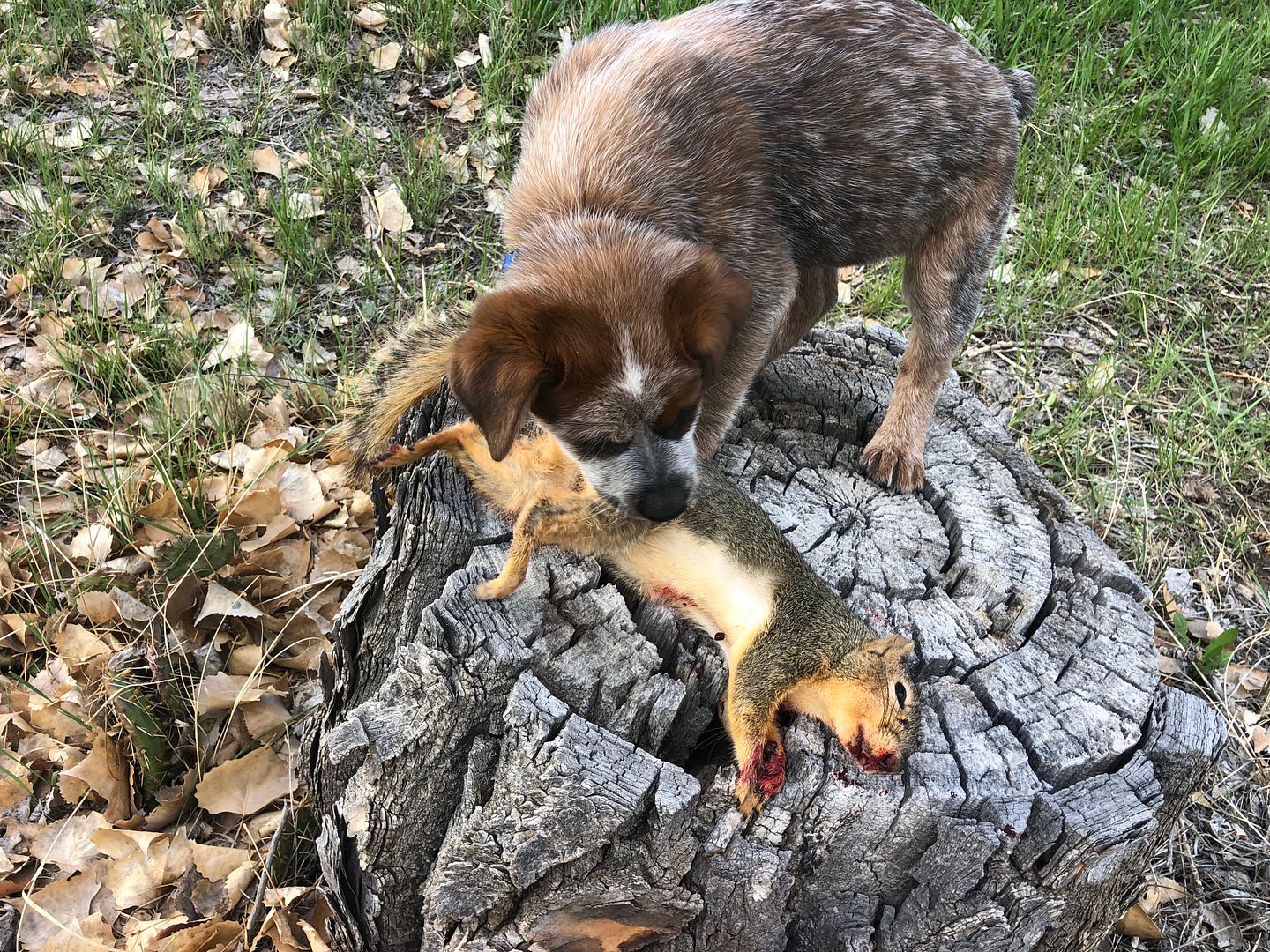
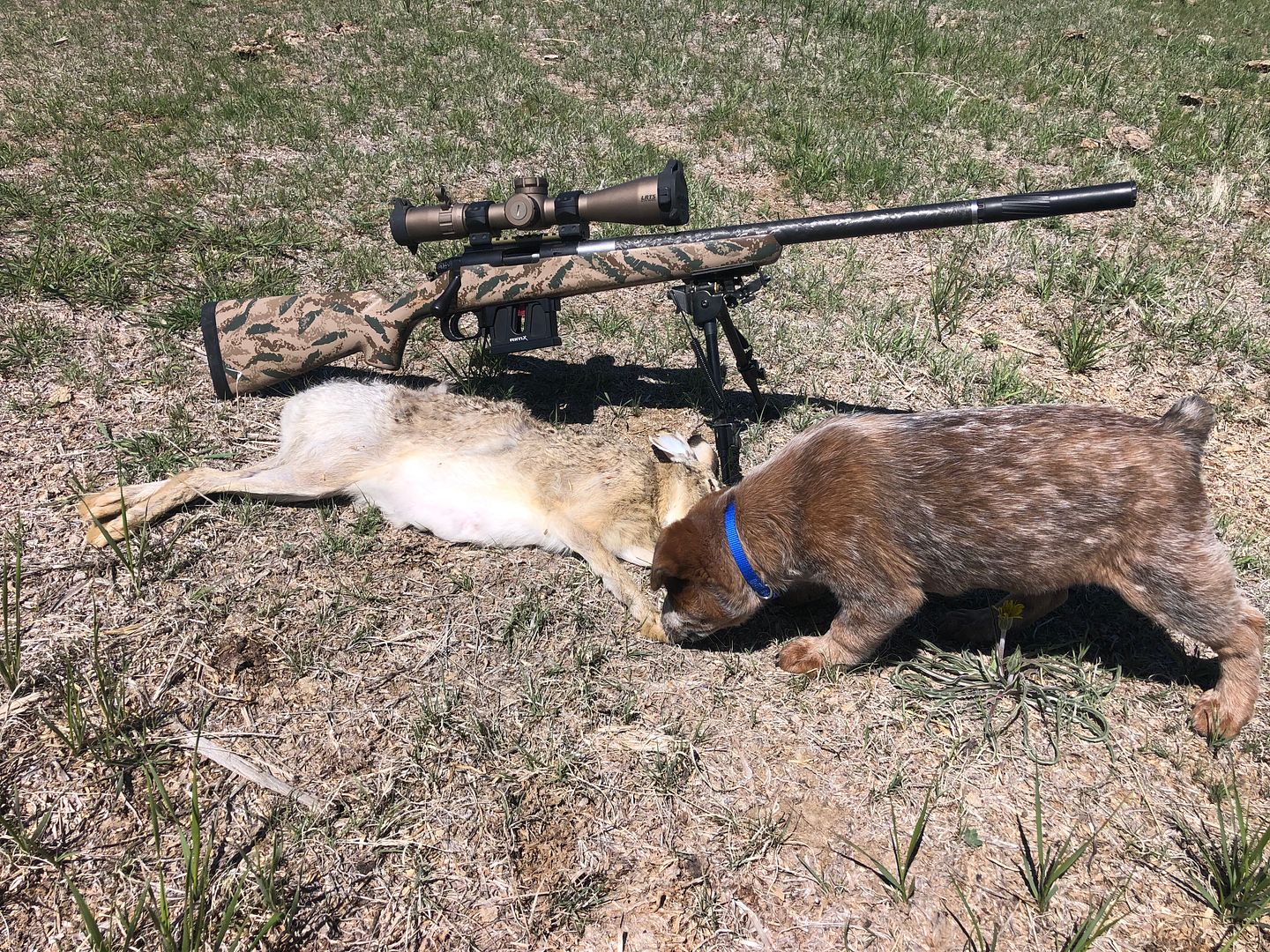
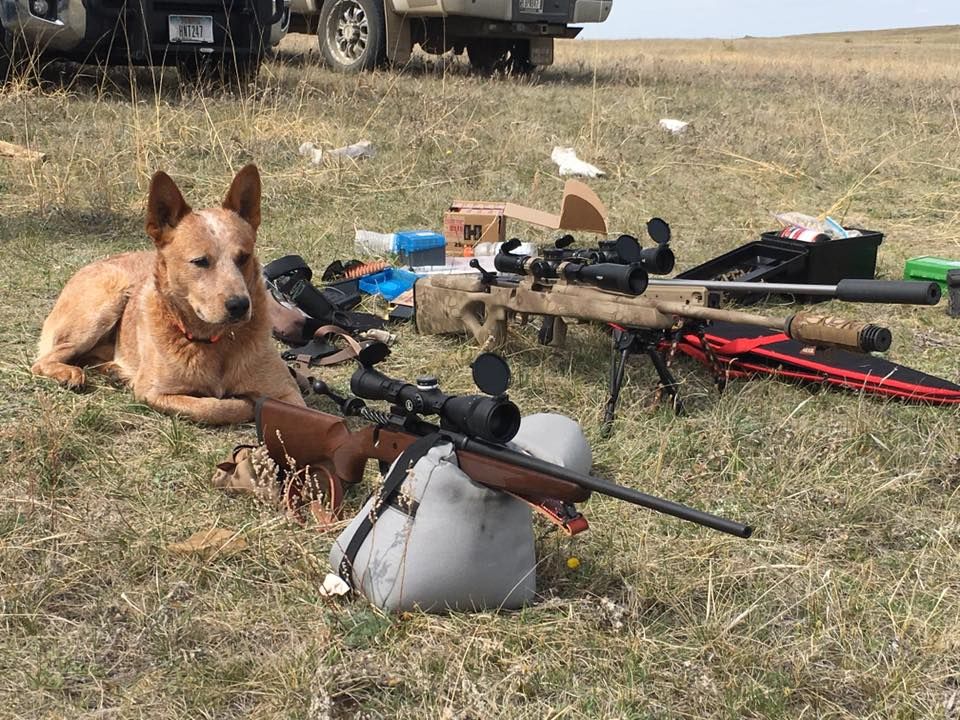
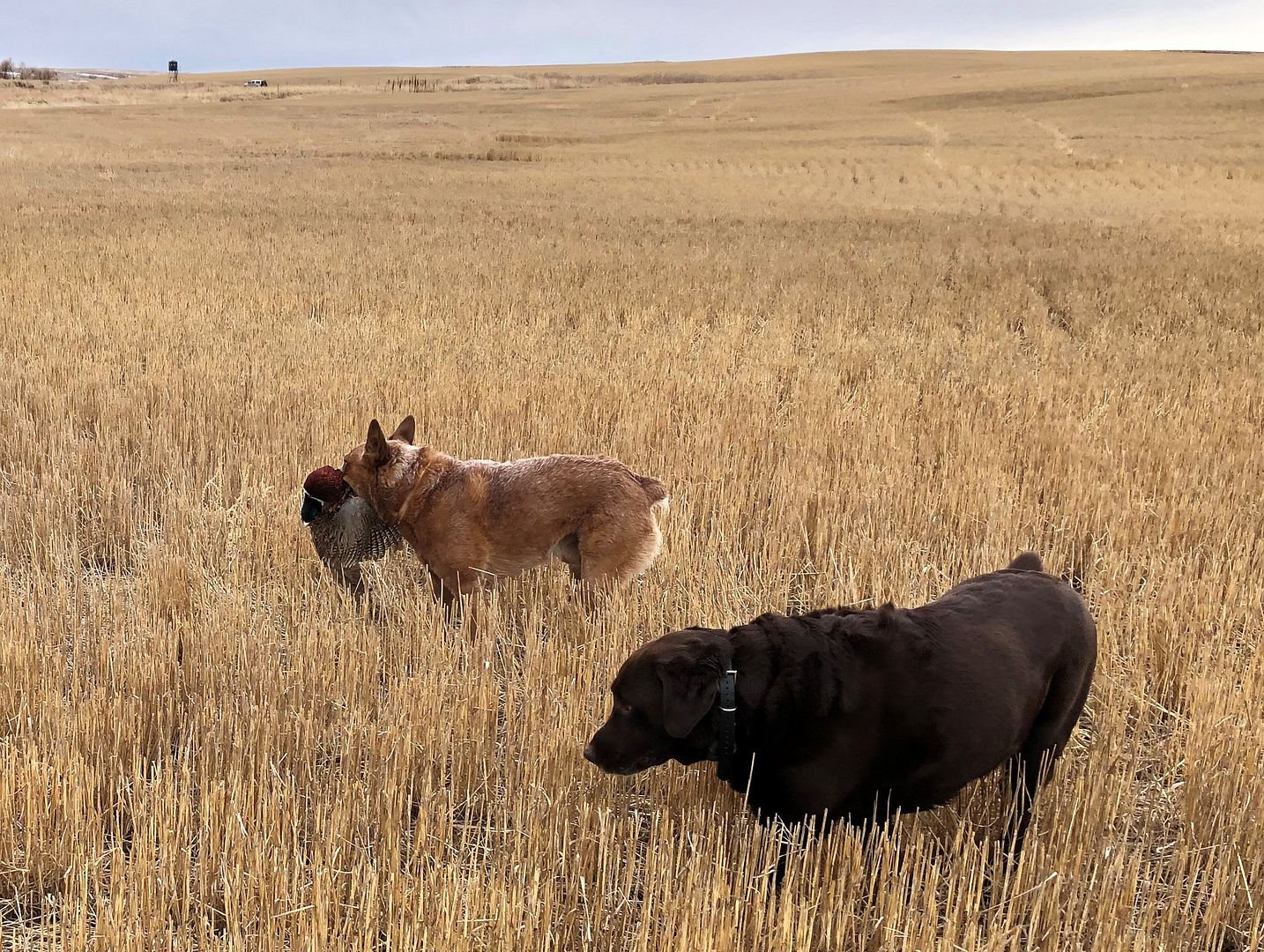
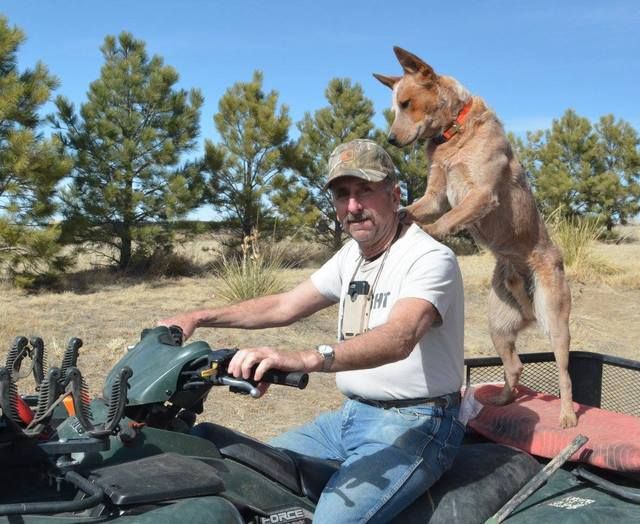
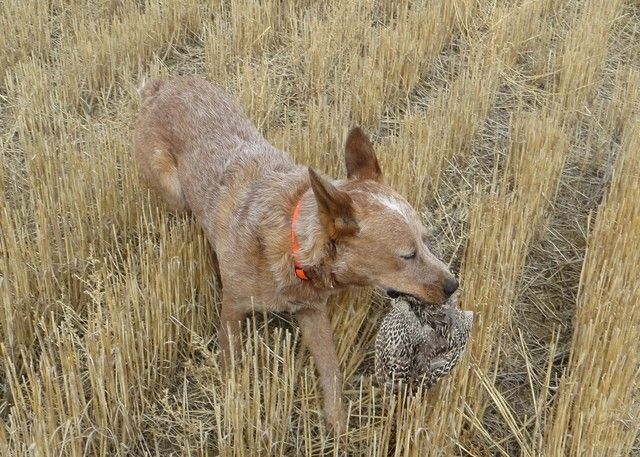
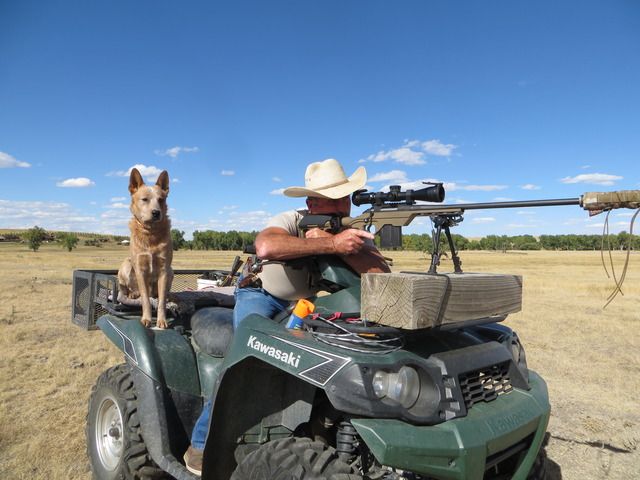
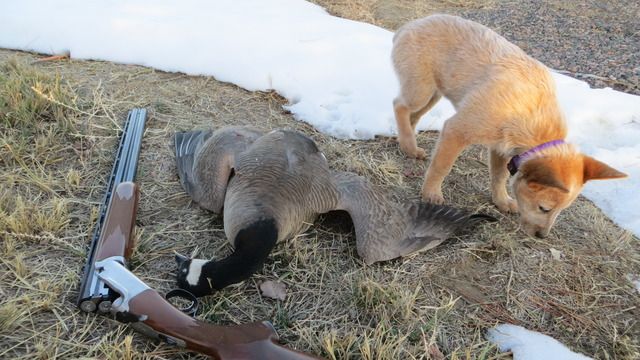
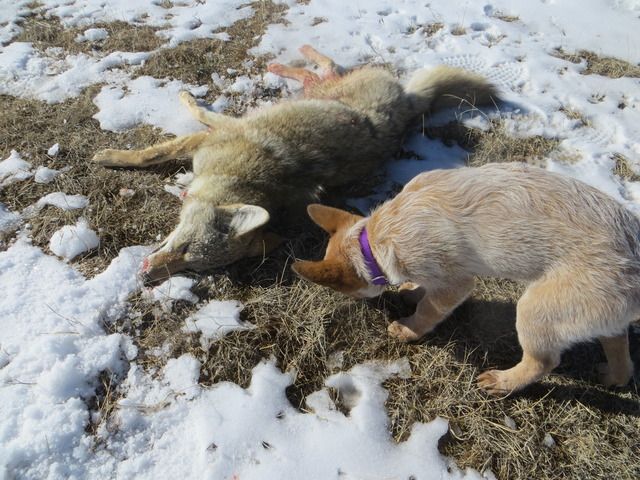
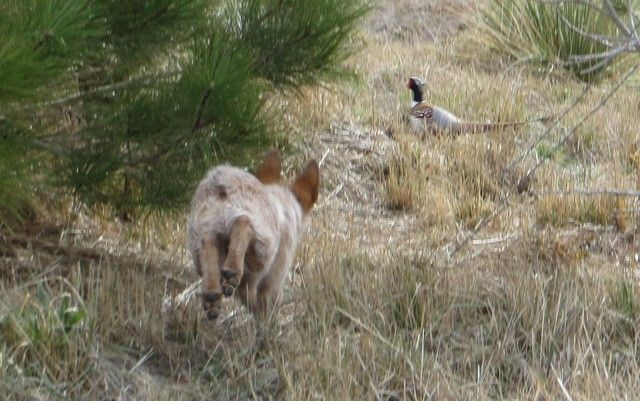
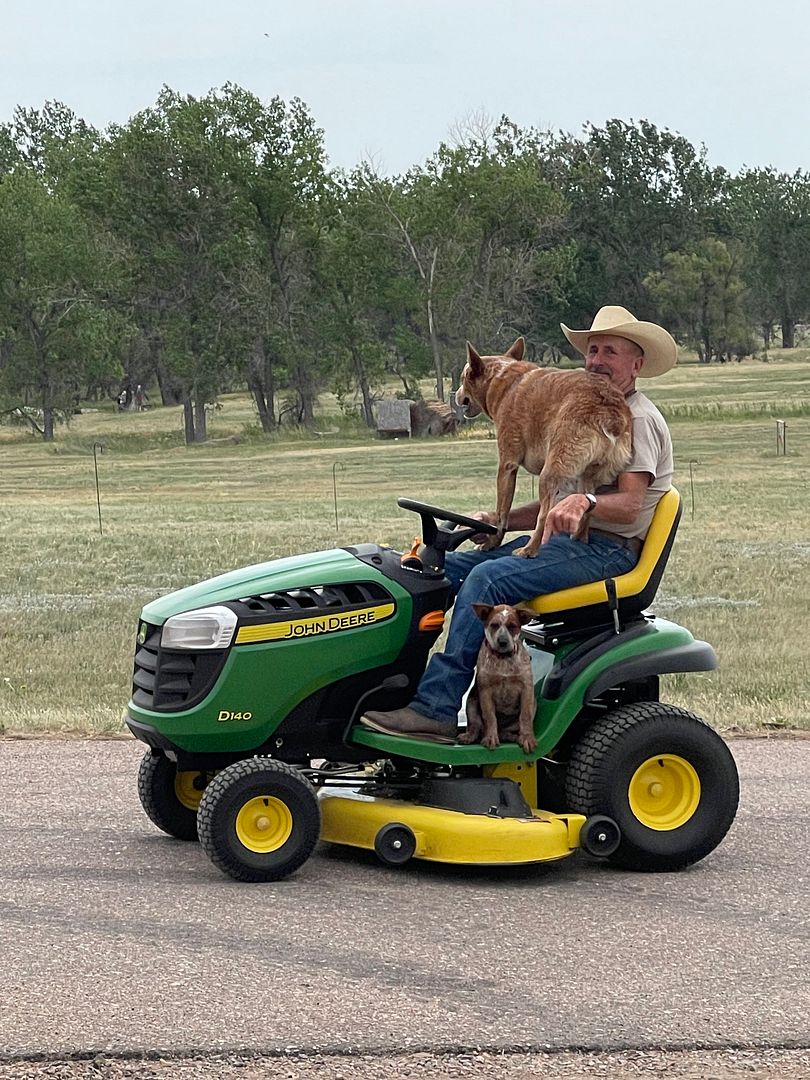
Sent from my SM-S731U using Tapatalk
Thanks for the replies guys. I have an E Collar on the way and plan on spending 15 minutes every day when I get home from work with Buck, starting withe the basics. He is 6 so I hope you CAN teach an old dog new tricks.
I absolutely kicked his ass this weekend. By far the most miles and climbing he's ever done in his life.

Sent from my SM-S731U using Tapatalk
I absolutely kicked his ass this weekend. By far the most miles and climbing he's ever done in his life.

Sent from my SM-S731U using Tapatalk
bigv
Lil-Rokslider
Here's a list of dogs I'd consider. Blue heeler. They are bad azzes in a small package. Might be my first choice. Don't get one form town hippie. Get on from rancher that works. Train it etc. Anatolian Shepherd. Friend has one. Most beautiful dog ive seen. HUGE! Scares hell out of me. Very gentle but huge and huge bark when unsure. Looks just like a wolf with ears down. They are guard/herd dogs. Great Pyrenese. Great dogs. Quietly I'd throw a chesapeake bay retriever in there. They are much like a lab. Easy to train what you want it to do. A little more stoic than a lab. Less needy. Tougher than a lab. Great outdoor dog with think curly coat. Can be bad azzes if need to. Hunting dog with good prey drive.
HighUintas
WKR
- Joined
- Feb 2, 2020
- Messages
- 4,297
Both my wife and I will be needing a bear alert dog companion in the next year or two. This thread is pretty helpful.
She's always been fond of the heelers. She had one years ago before we met that was perfect for watching the kids. It would be ready to tear anyone apart that it didn't know unless she gave it a verbal command that the person was ok.
Then we had a border Collie heeler mix a few years ago that we picked up from a crack house when she was probably 6mo old. Whatever happened to that dog as a pup turned it into the meanest and fastest thing I've ever seen. I would not be surprised if she could have taken down a grizzly. She was a bit problematic with other dogs but incredible for alert and protection against all threats after getting some training. She unfortunately died too young a few years ago likely from a heart issue. If I could clone her for the future I would.
One of my huge pet peeves is shedding. I just can't stand it. So what about an Airedale mixed with one of the others in this thread? Airedale/heeler or Airedale/catahoula?
She's always been fond of the heelers. She had one years ago before we met that was perfect for watching the kids. It would be ready to tear anyone apart that it didn't know unless she gave it a verbal command that the person was ok.
Then we had a border Collie heeler mix a few years ago that we picked up from a crack house when she was probably 6mo old. Whatever happened to that dog as a pup turned it into the meanest and fastest thing I've ever seen. I would not be surprised if she could have taken down a grizzly. She was a bit problematic with other dogs but incredible for alert and protection against all threats after getting some training. She unfortunately died too young a few years ago likely from a heart issue. If I could clone her for the future I would.
One of my huge pet peeves is shedding. I just can't stand it. So what about an Airedale mixed with one of the others in this thread? Airedale/heeler or Airedale/catahoula?
I've been following this thread out of pure curiosity. I have to say I haven't seen one argument that would lead me to getting any of these breeds over a Boxer. However, I'm pretty biased as we've had Boxers in my family going back at least 3 generations. I've never taken a dog out west with me, but I do have enough experience with them to know whether they'd meet the requirements put forth in this thread as well of better than any breed suggested. They make better companions than any breed suggested hands down to the point that you're likely to put yourself in between it and the bear.
I would put the healer 2nd.
I'm surprised no one has argued for a Mal or Dutch, they've become really popular since they became tacticool during the GWOT. Seems they'd work well for the right handler.
I would put the healer 2nd.
I'm surprised no one has argued for a Mal or Dutch, they've become really popular since they became tacticool during the GWOT. Seems they'd work well for the right handler.
Malinois are absolutely NOT family dogs; most are out of control, incessant barkers, and difficult to train, despite their drive and intelligence. Our department got rid of the two we had, only Czech German imports now, rock steady train easy and no bad kennel habits like incessant barking, jumping, chewing, and wall bouncing, while Malinois are more athletic, that trait does not necessitate we have them. On another note the imported strains,working of shepherds are not recommended for novice dog owners as they are quite dangerous if not trained, early and properly.I've been following this thread out of pure curiosity. I have to say I haven't seen one argument that would lead me to getting any of these breeds over a Boxer. However, I'm pretty biased as we've had Boxers in my family going back at least 3 generations. I've never taken a dog out west with me, but I do have enough experience with them to know whether they'd meet the requirements put forth in this thread as well of better than any breed suggested. They make better companions than any breed suggested hands down to the point that you're likely to put yourself in between it and the bear.
I would put the healer 2nd.
I'm surprised no one has argued for a Mal or Dutch, they've become really popular since they became tacticool during the GWOT. Seems they'd work well for the right handler.
Pacific_Fork
Well Known Rokslider
All a boxer is going to do is drown a bear in its drool, trip over a log, then run back to the truck lol.
I've had one of those. I've also had one that would sink his teeth into a bear's throat.All a boxer is going to do is drown a bear in its drool, trip over a log, then run back to the truck lol.
I don't have grizzlies near me but both male draahts in these pictures have run black bears off or treed them while out bird hunting. I also took the one out with me bear hunting over bait one year. I didn't have a blind or stand setup, we just sat on the ground 100 yards from the bait. He just laid down next to me until I shot one, then I walked him over to the shot location and he trailed it for me. The lab peeking over my shoulder just came out with my wife to help drag it out to the truck. I do quite a bit of jump shooting waterfowl with them so they heal off lead well in the woods when needed and will stay laid down quietly when told to so I can leave them behind (though not to shot like the vgj trained draahts or other better trained dogs).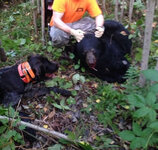

Attachments
I've been following this thread out of pure curiosity. I have to say I haven't seen one argument that would lead me to getting any of these breeds over a Boxer. However, I'm pretty biased as we've had Boxers in my family going back at least 3 generations. I've never taken a dog out west with me, but I do have enough experience with them to know whether they'd meet the requirements put forth in this thread as well of better than any breed suggested. They make better companions than any breed suggested hands down to the point that you're likely to put yourself in between it and the bear.
I would put the healer 2nd.
I'm surprised no one has argued for a Mal or Dutch, they've become really popular since they became tacticool during the GWOT. Seems they'd work well for the right handler.
It's because the people that own a Mal don't recommend anyone to get a Mal lol. I would dissuade anybody from getting a Mal, and tell them how much work they take and that it's not a good idea. Not because Mal's aren't awesome, and mine is fantastic, but because if you haven't done the research and already convinced yourself that you are up to it then you shouldn't get one.
Mal's are unique and take a lot of work, EVERY. SINGLE. DAY. With mine, if we take a day off of doing some kind of exercise and work he will start becoming real destructive and annoying, my daughters stuffed animals have taken the brunt of that.
The level of intelligence of these dogs is insane, but the requirement to make sure they are busy with a job is what should keep most people from getting one.
Jason Snyder
WKR
Mental stability is every bit as important as intelligence.
Coat is another consideration.
Coat is another consideration.
bigv
Lil-Rokslider
I'm a bird dog guy. Primarily retrievers but have been around several drahts. They are bad asses!I don't have grizzlies near me but both male draahts in these pictures have run black bears off or treed them while out bird hunting. I also took the one out with me bear hunting over bait one year. I didn't have a blind or stand setup, we just sat on the ground 100 yards from the bait. He just laid down next to me until I shot one, then I walked him over to the shot location and he trailed it for me. The lab peeking over my shoulder just came out with my wife to help drag it out to the truck. I do quite a bit of jump shooting waterfowl with them so they heal off lead well in the woods when needed and will stay laid down quietly when told to so I can leave them behind (though not to shot like the vgj trained draahts or other better trained dogs).View attachment 957253
bigv
Lil-Rokslider
agree with Jason. Not saying your boxer isn't a great dog but I don't know if a boxer is best suited for wild, mountainous terrain with inclement weather? Need a dog that can't handle terrain as well as possible harsh weather. Your dog may fight a bear better than it does a blizzard.
Lots of great posts and insights here. Really enjoyed following along.
As someone who backcountry hunts alone a good amount of my western hunting time each year, I've considered a 4 legged companion, well trained and suitable for the adventure. Finding a single dog that checks all the boxes of variability in a hunting scenario seems difficult to account for. While I've owned many dogs, mostly sporting breeds (labs, beagles, spaniels) I'm no expert trainer or dog breed afficianado. It seems to me well behaved companion is the #1 box to check and secondly a dog that might be useful, or at least, not harmful in a predator encounter would be my preferred order of preference. Don't hunt much in grizzly country, but this year did have a black bear boar walk (from upwind) right up to me while still hunting an active trail late morning. He got inside of 10 yards before he realized I was there and as soon as he did, performed his best Usain Bolt impersonation. Does get you to thinking.
Breeds on my short list for a hunting companion are the Airedale Terrier and the Wirehaired Pointing Griffon.
As someone who backcountry hunts alone a good amount of my western hunting time each year, I've considered a 4 legged companion, well trained and suitable for the adventure. Finding a single dog that checks all the boxes of variability in a hunting scenario seems difficult to account for. While I've owned many dogs, mostly sporting breeds (labs, beagles, spaniels) I'm no expert trainer or dog breed afficianado. It seems to me well behaved companion is the #1 box to check and secondly a dog that might be useful, or at least, not harmful in a predator encounter would be my preferred order of preference. Don't hunt much in grizzly country, but this year did have a black bear boar walk (from upwind) right up to me while still hunting an active trail late morning. He got inside of 10 yards before he realized I was there and as soon as he did, performed his best Usain Bolt impersonation. Does get you to thinking.
Breeds on my short list for a hunting companion are the Airedale Terrier and the Wirehaired Pointing Griffon.
johnnycake
WKR
I genuinely mean this with no offense to anybody or their dog. But until a given dog (I don't care what breed or pedigree) has been in close contact with a grizzly, you have zero idea how that dog is going to react. A black bear is simply not the same.
I have seen lots of dogs that show zero fear or hesitation to moose and black bears tuck tail, shut down, or bolt when they merely cut a fresh grizzly trail or scat. In one case, just the scent on my waders hanging outside for a month after skinning a couple of bears was enough to make the dog refuse to get back out of the truck in my driveway. And many of these are dogs that have lived their whole lives in Alaska. Several are big game companions and include some trained tracking dogs with alphabet soup German testing titles. Some of those dogs I know are great with grizzlies too, and have blood tracked them or thrown themselves literally at a brown bear during a family hike. But you just don't know how a dog is going to be around grizzlies until you actually put them in that situation.
My Ava respects the hell out of brown bears, doesn't back down but also doesn't pursue them unless I'm asking her to track. She has always been that way. By comparison, she's convinced black bears are just big, black bunny rabbits and that I am a fat old meanie for not letting her chase and catch them. And she's always been that way too. My younger dog is not quite as comfortable around grizzlies as my older dog, and that's partly her personality but I also think it is on me not getting her on any grizzly exposure until she was already +6 months old. She is the last puppy I'll get that was born in the winter for a number of reasons, and delayed bear exposure is one of them.
@grfox92 , from what you've written I think you're on the right track to work with the dog you have that you already know has the necessary grit (and stupidity) to face down a grizzly. As for the next dog, you are going to roll the dice and hope you end up with one that just has "it," and then try to work hard to expose the pup to fresh grizzly sign and scent from the very beginning.
I am curious though why you aren't interested in having the dog blood trail? That's a skill that basically any dog can be taught to do better than most people, and one that is very handy for a hunter (especially if you already have the dog right there with you--provided that it's legal in the state you are hunting). Don Abney has an excellent book that breaks down the process of teaching and training a tracking dog and I highly recommend it to anybody interested in tracking:
I have seen lots of dogs that show zero fear or hesitation to moose and black bears tuck tail, shut down, or bolt when they merely cut a fresh grizzly trail or scat. In one case, just the scent on my waders hanging outside for a month after skinning a couple of bears was enough to make the dog refuse to get back out of the truck in my driveway. And many of these are dogs that have lived their whole lives in Alaska. Several are big game companions and include some trained tracking dogs with alphabet soup German testing titles. Some of those dogs I know are great with grizzlies too, and have blood tracked them or thrown themselves literally at a brown bear during a family hike. But you just don't know how a dog is going to be around grizzlies until you actually put them in that situation.
My Ava respects the hell out of brown bears, doesn't back down but also doesn't pursue them unless I'm asking her to track. She has always been that way. By comparison, she's convinced black bears are just big, black bunny rabbits and that I am a fat old meanie for not letting her chase and catch them. And she's always been that way too. My younger dog is not quite as comfortable around grizzlies as my older dog, and that's partly her personality but I also think it is on me not getting her on any grizzly exposure until she was already +6 months old. She is the last puppy I'll get that was born in the winter for a number of reasons, and delayed bear exposure is one of them.
@grfox92 , from what you've written I think you're on the right track to work with the dog you have that you already know has the necessary grit (and stupidity) to face down a grizzly. As for the next dog, you are going to roll the dice and hope you end up with one that just has "it," and then try to work hard to expose the pup to fresh grizzly sign and scent from the very beginning.
I am curious though why you aren't interested in having the dog blood trail? That's a skill that basically any dog can be taught to do better than most people, and one that is very handy for a hunter (especially if you already have the dog right there with you--provided that it's legal in the state you are hunting). Don Abney has an excellent book that breaks down the process of teaching and training a tracking dog and I highly recommend it to anybody interested in tracking:
Depends on the dogs lineage and breeding , my dogs the brunt have all been exposed to grizzly, fresh scent and old, some have seen a grizzly at considerable yardage. Now we all know a grizzly will make short work of any dog, but knowing they will give their life so that you may save yours is reassuring.This dog shown below is the most dangerous we've ever imported and trained, he just recently went to US Border Patrol,two years with a tariner,he's 100% controllable and his bite is so ferocious we use a double sleeve when doing attack work, he was a high dollar dog, before leaving we bred him and froze semen for future breedings. A monster of a dog.He's waiting to attack now ,single sleeve he needs muzzled as his bite can be painful through a single sleeve, when doubled he's not muzzled.I genuinely mean this with no offense to anybody or their dog. But until a given dog (I don't care what breed or pedigree) has been in close contact with a grizzly, you have zero idea how that dog is going to react. A black bear is simply not the same.
I have seen lots of dogs that show zero fear or hesitation to moose and black bears tuck tail, shut down, or bolt when they merely cut a fresh grizzly trail or scat. In one case, just the scent on my waders hanging outside for a month after skinning a couple of bears was enough to make the dog refuse to get back out of the truck in my driveway. And many of these are dogs that have lived their whole lives in Alaska. Several are big game companions and include some trained tracking dogs with alphabet soup German testing titles. Some of those dogs I know are great with grizzlies too, and have blood tracked them or thrown themselves literally at a brown bear during a family hike. But you just don't know how a dog is going to be around grizzlies until you actually put them in that situation.
My Ava respects the hell out of brown bears, doesn't back down but also doesn't pursue them unless I'm asking her to track. She has always been that way. By comparison, she's convinced black bears are just big, black bunny rabbits and that I am a fat old meanie for not letting her chase and catch them. And she's always been that way too. My younger dog is not quite as comfortable around grizzlies as my older dog, and that's partly her personality but I also think it is on me not getting her on any grizzly exposure until she was already +6 months old. She is the last puppy I'll get that was born in the winter for a number of reasons, and delayed bear exposure is one of them.
@grfox92 , from what you've written I think you're on the right track to work with the dog you have that you already know has the necessary grit (and stupidity) to face down a grizzly. As for the next dog, you are going to roll the dice and hope you end up with one that just has "it," and then try to work hard to expose the pup to fresh grizzly sign and scent from the very beginning.
I am curious though why you aren't interested in having the dog blood trail? That's a skill that basically any dog can be taught to do better than most people, and one that is very handy for a hunter (especially if you already have the dog right there with you--provided that it's legal in the state you are hunting). Don Abney has an excellent book that breaks down the process of teaching and training a tracking dog and I highly recommend it to anybody interested in tracking:
Attachments
I am curious though why you aren't interested in having the dog blood trail? That's a skill that basically any dog can be taught to do better than most people, and one that is very handy for a hunter (especially if you already have the dog right there with you--provided that it's legal in the state you are hunting). Don Abney has an excellent book that breaks down the process of teaching and training a tracking dog and I highly recommend it to anybody interested in tracking:
I guess the only reason I said that is because I didn't want people to sway their responses based on the blood trailing aspect.
Sent from my SM-S931U using Tapatalk
RockAndSage
WKR
I genuinely mean this with no offense to anybody or their dog. But until a given dog (I don't care what breed or pedigree) has been in close contact with a grizzly, you have zero idea how that dog is going to react. A black bear is simply not the same.
I have seen lots of dogs that show zero fear or hesitation to moose and black bears tuck tail, shut down, or bolt when they merely cut a fresh grizzly trail or scat. In one case, just the scent on my waders hanging outside for a month after skinning a couple of bears was enough to make the dog refuse to get back out of the truck in my driveway. And many of these are dogs that have lived their whole lives in Alaska. Several are big game companions and include some trained tracking dogs with alphabet soup German testing titles. Some of those dogs I know are great with grizzlies too, and have blood tracked them or thrown themselves literally at a brown bear during a family hike. But you just don't know how a dog is going to be around grizzlies until you actually put them in that situation.
My Ava respects the hell out of brown bears, doesn't back down but also doesn't pursue them unless I'm asking her to track. She has always been that way. By comparison, she's convinced black bears are just big, black bunny rabbits and that I am a fat old meanie for not letting her chase and catch them. And she's always been that way too. My younger dog is not quite as comfortable around grizzlies as my older dog, and that's partly her personality but I also think it is on me not getting her on any grizzly exposure until she was already +6 months old. She is the last puppy I'll get that was born in the winter for a number of reasons, and delayed bear exposure is one of them.
@grfox92 , from what you've written I think you're on the right track to work with the dog you have that you already know has the necessary grit (and stupidity) to face down a grizzly. As for the next dog, you are going to roll the dice and hope you end up with one that just has "it," and then try to work hard to expose the pup to fresh grizzly sign and scent from the very beginning.
I am curious though why you aren't interested in having the dog blood trail? That's a skill that basically any dog can be taught to do better than most people, and one that is very handy for a hunter (especially if you already have the dog right there with you--provided that it's legal in the state you are hunting). Don Abney has an excellent book that breaks down the process of teaching and training a tracking dog and I highly recommend it to anybody interested in tracking:
That's really good food for thought, and makes a lot of sense.
A question that comes to mind though, is how much of the responses you're describing are conditioning?
How much of a good response from a non-conditioned dog simply be that it doesn't know any better, having never encountered grizzly before?
johnnycake
WKR
I agree that lineage and breeding can help, insofar as that will predisposition the dog to certain personality and temperament traits that are favorable. For example, being bold and assertive are good things to have in a bear dog, and breeding will definitely help with that. Couple that with early exposure and training and you're doing the best you can to have the dog do what you are hoping for (which is also true for whatever skill you have in mind for the dog). But it's not a guarantee. Case in point, dogs fail out of law enforcement and military K9 training all the time for a variety of reasons, despite excellent breeding and solid handling. Anybody who thinks they can guarantee a result when it comes to dogs, is full of it.Depends on the dogs lineage and breeding , my dogs the brunt have all been exposed to grizzly, fresh scent and old, some have seen a grizzly at considerable yardage. Now we all know a grizzly will make short work of any dog, but knowing they will give their life so that you may save yours is reassuring.This dog shown below is the most dangerous we've ever imported and trained, he just recently went to US Border Patrol,two years with a tariner,he's 100% controllable and his bite is so ferocious we use a double sleeve when doing attack work, he was a high dollar dog, before leaving we bred him and froze semen for future breedings. A monster of a dog.He's waiting to attack now ,single sleeve he needs muzzled as his bite can be painful through a single sleeve, when doubled he's not muzzled.
My next door neighbor is a state trooper and has a retired K9 Czech import GSD and an active K9 Malinois. She regularly holds K9 trainings in her yard and up and down our culdesac. She came up to chat with me a few years ago to ask what I had been killing recently. Apparently her GSD would growl and back away whenever the wind was blowing from the south, and other officers' dogs had very interesting and unexpected results during some training sessions when my bear waders were airing out! I now know to give her a heads up when I've got serious brown bear stink going on in my driveway.
There's just something about grizzlies/brown bears that registers in dogs differently than any other N.A. animal I've dealt with (no experience with polar bears--yet). And until you put a dog in close contact with a grizzly, you just do not know what they are going to do or how they will act.
Similar threads
- Replies
- 29
- Views
- 1K
- Replies
- 20
- Views
- 741
Featured Video
Latest Articles
- Banning Hunting Technology in Idaho?
- Best Gear of the year Rokslide staff edition 2025 Article
- Hunting Gear: Insights from Western Hunting Expo
- Black Diamond Alpine Start Insulated Hoody Review
- Tenacity Firearms with Andrew Whitney
- The Thrill of Moose Hunting with Henry Ferguson
- Final Rise Upland Hand Muff Review
- Kodiak Deer Hunt Round II
- Killing a Timber Giant
- Titanium Suppressor Shootout



